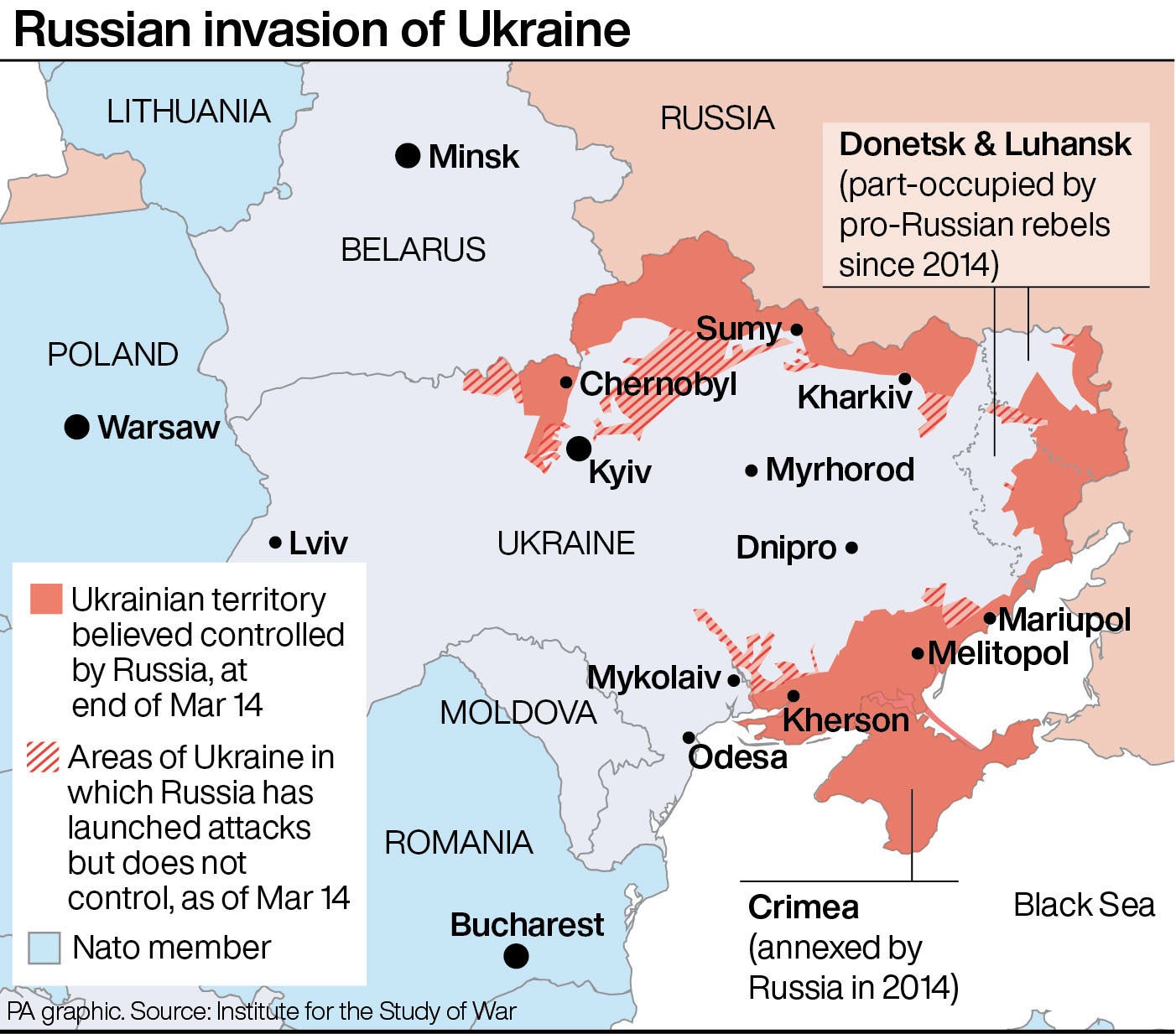Mayor of town housing workers at Chernobyl warns of ‘another Fukushima’ as hostages run out of food and fuel
Mayor wants humanitarian corridor for workers on the edge ‘due to physical and emotional exhaustion’
Your support helps us to tell the story
From reproductive rights to climate change to Big Tech, The Independent is on the ground when the story is developing. Whether it's investigating the financials of Elon Musk's pro-Trump PAC or producing our latest documentary, 'The A Word', which shines a light on the American women fighting for reproductive rights, we know how important it is to parse out the facts from the messaging.
At such a critical moment in US history, we need reporters on the ground. Your donation allows us to keep sending journalists to speak to both sides of the story.
The Independent is trusted by Americans across the entire political spectrum. And unlike many other quality news outlets, we choose not to lock Americans out of our reporting and analysis with paywalls. We believe quality journalism should be available to everyone, paid for by those who can afford it.
Your support makes all the difference.The mayor of the Ukrainian town where Russian troops have allegedly held Chernobyl nuclear power plant workers hostage has warned of a “complete catastrophe”.
Yuri Fomichev, mayor of Slavutych in the northern part of the country, issued a desperate plea that said the town was running out of fuel at the site, including for emergency backup generators for its safety systems, and food for the workers.
Pleading for a humanitarian corridor, the mayor told Daily Mail that “all safety systems are supported on generators, which are also running out of fuel”.
He added: “If the cooling systems stop, even for a while, we will get yet another Fukushima [a reference to the 2012 Japanese nuclear disaster].”
The power plant has 20 tons of nuclear waste that require constant cooling to prevent radiation from leaking through vaporisation.
Chernobyl was seized by the Russian troops three weeks back and since then there has been a shortage of food and fuel supply. According to reports, the hostage staff of the besieged power plant are being made to work at gunpoint by Russian soldiers.
Ukrainian officials have alleged 400 Russian troops are stationed at the plant.
The town with a population of about 20,000 people was attacked by Russian forces crossing from the Belarus border on the first day of Vladimir Putin’s invasion of Ukraine. A key access bridge was blown up by troops, cutting the town off.

The official in-charge of an Exclusion Zone around Chernobyl warned that staff were on the edge of their “human capabilities due to physical and emotional exhaustion”.
The town was left without power for five days after a high-voltage line was damaged by Mr Putin’s troops during the fighting and the nuclear plant was disconnected from the power grid.
Ukraine on Monday said it has restored power at the Chernobyl plant, averting “the risk of a possible nuclear catastrophe” for all of Europe.
“Our Ukrainian energy engineers, by risking their own health and lives, were able to avert the risk of a possible nuclear catastrophe that threatened the whole of Europe,” Ukraine’s energy minister German Galushchenko said in a statement.
Ukrainian intelligence officials last week claimed Russia is preparing to stage a “false flag” attack on the Chernobyl plant and later would pin the blame on the war-torn country.
The Intelligence Directorate in a Facebook post claimed: “The Russian forces are planning to create a man-made disaster at the Chernobyl nuclear power plant, and the occupiers will try to shift responsibility for it on Ukraine".
The International Atomic Energy Agency (IAEA) said there was no need for immediate alarm over the condition of Chernobyl. While the loss of power violated a “key safety pillar,” the agency said it saw “no critical impact on safety”.
Russian forces had also captured Zaporizhzhia, Europe’s biggest atomic power plant earlier on 4 March. It was accused of shelling a nuclear research institute housing an experimental reactor in the country’s second-largest city of Kharkiv.
The Independent has a proud history of campaigning for the rights of the most vulnerable, and we first ran our Refugees Welcome campaign during the war in Syria in 2015. Now, as we renew our campaign and launch this petition in the wake of the unfolding Ukrainian crisis, we are calling on the government to go further and faster to ensure help is delivered. To find out more about our Refugees Welcome campaign, click here.
To sign the petition click here. If you would like to donate then please click here for our GoFundMe page.

Join our commenting forum
Join thought-provoking conversations, follow other Independent readers and see their replies
Comments